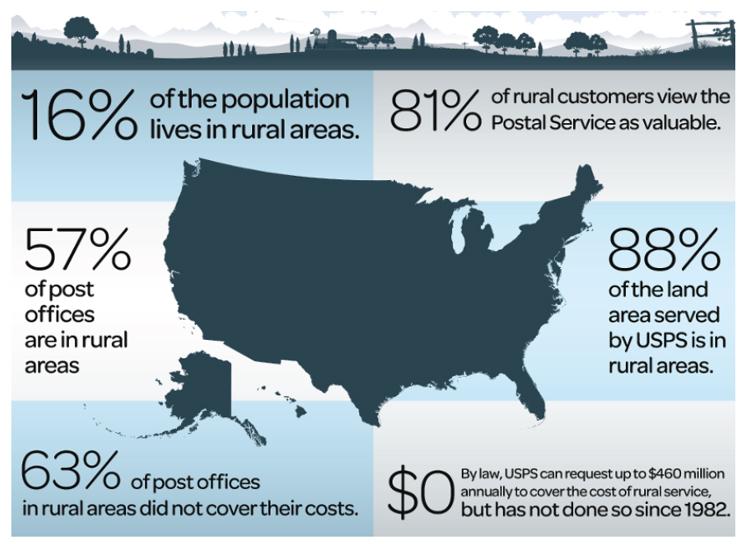by Kylee Boyter
kboyter@cherryroad.com
The debate over whether to privatize the United States Postal Service (USPS) has persisted for decades. Advocates argue that privatization could lead to greater efficiency, cost savings, and enhanced customer service. However, these potential benefits come with significant risks, particularly for rural communities and the principle of maintaining access to a free press. The USPS was established with a clear mission to serve the public good, a mission that privatization could potentially undermine.
One of the foundational purposes of the USPS, as established by the Postal Service Act of 1792, was to ensure the inexpensive delivery of newspapers, thereby promoting a free press. As a newspaper entity, this act not only supports our ability to serve our customers but benefits individuals on a personal level as well.
The act recognized the importance of an informed population and emphasized the role of the postal service in connecting Americans regardless of where they lived. This commitment to universal service continues to this day, as the USPS guarantees the same delivery costs across the nation, even in the most remote areas.
Rural areas, in particular, are heavily reliant on the USPS. According to an April 2022 report from the Office of Inspector Generals, 16% of the U.S. population resides in rural areas, which account for 88% of the land served by the USPS. For these communities, the postal service is often a lifeline, providing critical services such as the delivery of medications, essential goods, and ballots during election times. Private companies, driven by profit motives, are unlikely to maintain the USPS’s commitment to equal-cost delivery. Instead, they could impose higher fees for rural deliveries, exacerbating existing disparities and leaving vulnerable populations with reduced access to vital services.
The financial challenges faced by the USPS are undeniable. In its Fiscal Year 2024 report, the USPS disclosed a negative net worth of $32.6 billion and an annual loss of $9.5 billion. While these figures highlight the unsustainable nature, for a government entity or private business.
It is important to remember that the USPS was not designed to operate solely as a profit-driven entity. Its primary mission is to serve the public interest, a role that cannot be fulfilled by private companies focused on maximizing profits.
Privatization would also risk reducing oversight and regulation, potentially compromising the reliability and accountability that the USPS has maintained for centuries. The USPS operates under strict guidelines to ensure fairness, security, and transparency, attributes that could be diminished under a privatized system. For businesses and individuals alike, the potential for reduced reliability in mail delivery poses significant concerns.
Instead of privatization, policymakers should suggest alternative solutions to address the USPS’s financial challenges. These could include reforms to its funding structure, adjustments to pricing strategies, or subsidies to support its essential public services. By maintaining the USPS as a public entity, the nation can continue to uphold its commitment to universal service and the free press, ensuring that all Americans—regardless of location—remain connected and informed.
In closing, the USPS is more than a delivery service; it is a cornerstone of American democracy and community. Privatization may offer the allure of efficiency and cost savings, but these benefits come at too high a cost. Preserving the USPS in its current form is essential to protecting rural communities, especially ones like our own.

